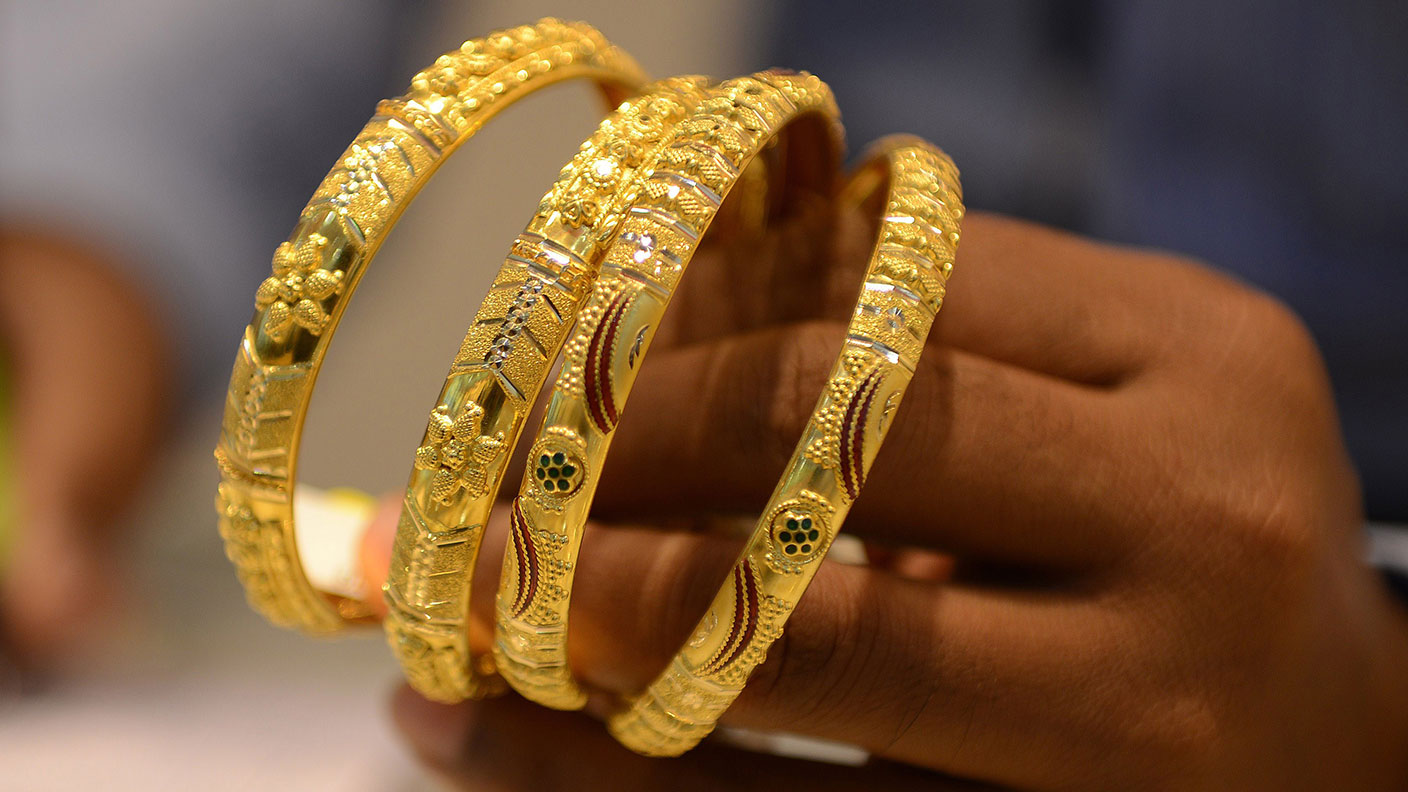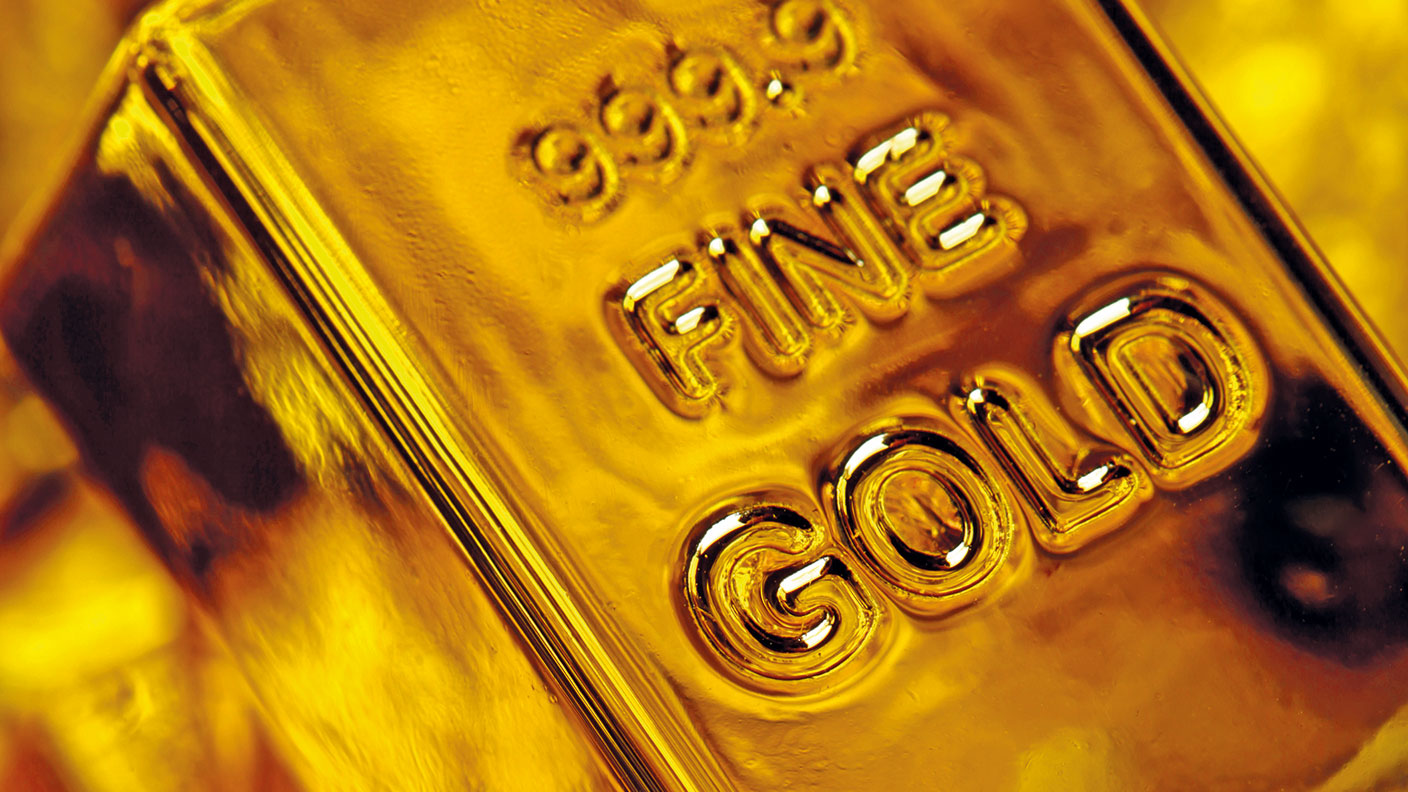Gold has finally broken free – is its bull market here at last?
Gold has had a quiet few years. But the conditions are now ripe for it to go on a proper bull run. John Stepek explains why.

Get the latest financial news, insights and expert analysis from our award-winning MoneyWeek team, to help you understand what really matters when it comes to your finances.
You are now subscribed
Your newsletter sign-up was successful
Want to add more newsletters?

Twice daily
MoneyWeek
Get the latest financial news, insights and expert analysis from our award-winning MoneyWeek team, to help you understand what really matters when it comes to your finances.

Four times a week
Look After My Bills
Sign up to our free money-saving newsletter, filled with the latest news and expert advice to help you find the best tips and deals for managing your bills. Start saving today!

Every asset on the planet has been having fun since the Federal Reserve, America's central bank, made clear on Wednesday that an interest rate cut is coming as early as next month.
Share prices have surged (the US market, the S&P 500, is at a new all-time high).
Bond prices have surged too (the volume of negative-yielding sovereign debt around the world is also at an all-time high).
MoneyWeek
Subscribe to MoneyWeek today and get your first six magazine issues absolutely FREE

Sign up to Money Morning
Don't miss the latest investment and personal finances news, market analysis, plus money-saving tips with our free twice-daily newsletter
Don't miss the latest investment and personal finances news, market analysis, plus money-saving tips with our free twice-daily newsletter
But one asset that isn't quite as used to all this adulation has also been drawing a bit of attention.
Gold.
Gold hasn't been as much of a duff investment as you might think
Gold is normally my colleague Dominic Frisby's patch, but I'm sure, given all the excitement, he'll forgive me for sticking my oar in this morning.
It's easy to dismiss gold as the asset that the recovery forgot. Stocks and bonds have been terribly exciting since the post-financial crisis era kicked off.
Gold, on the other hand, peaked in 2011 at above $1,900 an ounce, eventually bottomed in late 2015 at around $1,100, and since then has done very little.
That's not the entire truth, however. It's worth remembering that since around late 2014, early 2015, the US dollar has been strong against most other global currencies. So gold's rather more bullish performance since then against many global currencies has been somewhat overlooked.
The UK is a very obvious example. With sterling taking its post-Brexit hammering, the gold price surged from around £700 per ounce to above £1,000. It hasn't quite breached the 2011 high of not far off £1,200, but we are now back close to the £1,100 mark.
But it's not just the UK. As Mark O'Byrne of GoldCore pointed out to me the other day, gold priced in Australian dollars has now broken out to a new record high it surged to above A$2,000 this week (this is great news for Aussie gold miners, by the way).
So your average Aussie gold owner probably couldn't give a hoot about what the gold price has been doing in US dollar terms. She or he is just glad that they own the stuff.
However, all of that said, gold has now done something in US dollar terms that has everyone getting very excited. Dominic has written many times this year about how the $1,360 an ounce level is a big deal in technical terms (it represents "resistance").
Well, this week, gold has just sliced through it like it wasn't there. And as far as the people who watch these things are concerned, that means it's party time for the yellow metal again.
So should you be buying?
The backdrop is looking good for gold
While I respect technical analysis you can call it hocus pocus if you want, but very few serious investors I've met dismiss it out of hand I'm not a chartist myself. So I'm not going to attempt to give you the technical picture here.
And as long-suffering readers will know, we reckon you should always have some gold in your portfolio for the purposes of diversification, and also to provide some sort of insurance against financial disaster.
(And if you really are worried about a full-on world of capital controls or restrictions on movement or some other major disruption to civil society as we know it, then gold is among the very few assets which packs a lot of value into an easily portable form you just need to make sure you can access it when you need it.)
So you won't catch me telling you to sell all your gold at any point, almost regardless of what happens (although a breakthrough in alchemy might irreparably damage the case for gold).
Also, gold bugs have endured many false dawns. The level of excitement generated by the current "breakout" (even the generally gold-sceptical Financial Times has an upbeat take on gold in its Lex column today) does make me think that this could easily be another. So I wouldn't be running out to take a great big leveraged short-term day-trading punt on it in the next hour or so.
But that said, it does also look to me as though the conditions are now ripe for gold to embark on a proper bull run. In the grander scheme of things, if the interest-rate-raising cycle is now over and it clearly is, almost regardless of what happens to economic data then the runway is a lot clearer for gold.
A change of heart by the Fed, or a slide into catastrophic deflation (gold hates it when real interest rates go up as I outlined here) are about the only things I can think of that would make life much tougher for gold, and I can't see either of them happening (and in the second case, you'd want to own gold anyway, because of the risk to the financial system).
So, in short, if you don't own gold, get some. If you do own gold, consider whether you want to increase that (in other words, if you are someone who tries to actively manage their asset allocation, now might be a time to "overweight" gold rather than "underweight" it).
And on the equities front, look at gold miners. I'd use a fund rather than trying to pick individual winners this is a sector full of potential disasters but the nice thing is that when gold miners do take off, even a fund can deliver very chunky returns in a short space of time.
My colleague Max King looked at ways to play the gold mining sector in a recent issue of MoneyWeek magazine. Subscribe here to get your first six issues free.
Get the latest financial news, insights and expert analysis from our award-winning MoneyWeek team, to help you understand what really matters when it comes to your finances.

-
 Should you buy an active ETF?
Should you buy an active ETF?ETFs are often mischaracterised as passive products, but they can be a convenient way to add active management to your portfolio
-
 Power up your pension before 5 April – easy ways to save before the tax year end
Power up your pension before 5 April – easy ways to save before the tax year endWith the end of the tax year looming, pension savers currently have a window to review and maximise what’s going into their retirement funds – we look at how
-
 'Investors should brace for Trump’s great inflation'
'Investors should brace for Trump’s great inflation'Opinion Donald Trump's actions against Federal Reserve chair Jerome Powell will likely stoke rising prices. Investors should prepare for the worst, says Matthew Lynn
-
 Canada will be a winner in this new era of deglobalisation and populism
Canada will be a winner in this new era of deglobalisation and populismGreg Eckel, portfolio manager at Canadian General Investments, selects three Canadian stocks
-
 Metals prices wobble on slowdown fears
Metals prices wobble on slowdown fearsNews The S&P GSCI index of 24 major raw materials has fallen back 9% since mid-June on growing fears of a recession, and copper has hit a 16-month low after losing 22% since a peak in early March.
-
 How to invest in energy and metals as tech stocks crash
How to invest in energy and metals as tech stocks crashAnalysis It’s been a terrible week for stockmarkets. But not everything is crashing – “real” assets such as metals and energy are holding up well and should have a good 2022. Dominic Frisby picks the best ways to buy in.
-
Gold regains some of its shine
News The gold price perked up this week, hitting a four-week high.
-
 Gold regains its shine after inflation risks resurface
Gold regains its shine after inflation risks resurfaceAnalysis Gold prices have been rising over the past month as fears of US inflation resurface. Saloni Sardana explains whether this could usher in a new bullish era for the precious metal.
-
 Think Tesla is a bubble? This might be the best way to bet on it bursting
Think Tesla is a bubble? This might be the best way to bet on it burstingOpinion The huge rise in Tesla’s share price means that, by market value, it’s now the sixth-largest company in the US and and the world’s biggest car-maker. Shorting it is a dangerous game. But there are other ways to bet on the bubble bursting. John Stepek explains how.
-
 The going looks good for gold
The going looks good for goldAdvice With inflation fears rising and interest rates nailed to the floor, the outlook for gold is bright, says John Stepek.